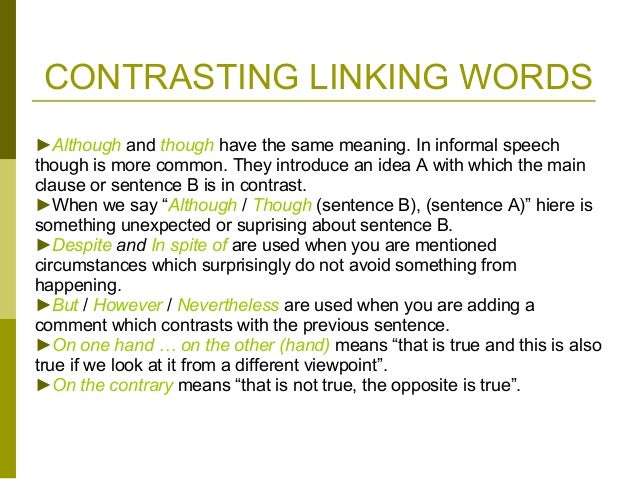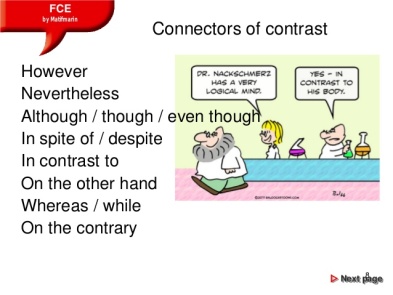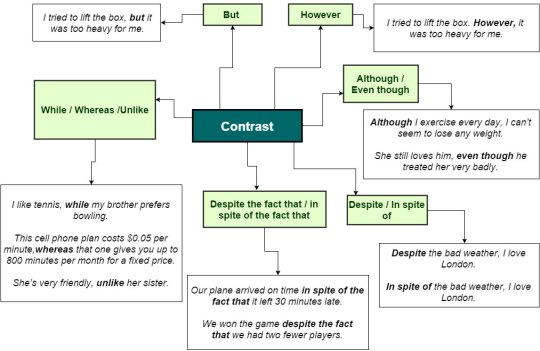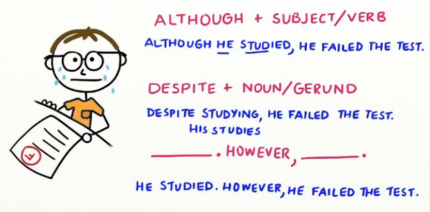Contrasting ideas
Expressing contrast and concession
Connectors are very important to make the texts we write more cohesive.
There are many different types, but today we are simply going to sonsider the ones used to express contrast or concession, that means when ideas seem to diverge.
Look at the list below:
They all introduce a note of contrast and disagreement, but they have different ways of being used in the sentences. For example their placement may vary. Some are more often used at the beginning, some at the end and others in the middle.
Besides their position, they also require different types of completion. Note the differences in the explanation below:
Although / though / even though (need a full clause (subject + verb).
Despite /In spite of – take a Gerund (ing form) or noun
Despite the fact that… / In spite of the fact that …. – full clause (subject + verb)
Yet / Still /However / Nevertheless – need a comma (,) and come in the middle of two clauses.
Shall we try a few exercises?
Connectors are very important to make the texts we write more cohesive.There are many different types, but today we are simply going to sonsider the ones used to express contrast or concession, that means when ideas seem to diverge.Look at the list below:They all introduce a note of contrast and disagreement, but they have different ways of being used in the sentences. For example their placement may vary. Some are more often used at the beginning, some at the end and others in the middle.
Besides their position, they also require different types of completion. Note the differences in the explanation below:Although / though / even though (need a full clause (subject + verb).Despite /In spite of – take a Gerund (ing form) or nounDespite the fact that… / In spite of the fact that …. – full clause (subject + verb)Yet / Still /However / Nevertheless – need a comma (,) and come in the middle of two clauses.
Shall we try a few exercises?
in spite of / despite / although
In spite of, despite and although are all used to show a contrast but there are differences in the structures used with them.In spite of / despite
After in spite of and despite we use a noun or a pronoun.
- We enjoyed our camping holiday in spite of the rain.
- Despite the pain in his leg he completed the marathon.
- Despite having all the necessary qualifications, they didn’t offer me the job.
The only difference between in spite of and despite is the ‘of’.
Despite of the bad weather, there was a large crowd at the match.
After although we use a subject and a verb.
- We enjoyed our camping holiday although it rained every day.
- Although he worked very hard, he didn’t manage to pass the exam.
- The holiday was great although the hotel wasn’t very nice.
- In spite of the fact that he worked very hard, he didn’t manage to pass the exam.
- Despite the fact that he worked very hard, he didn’t manage to pass the exam.
Even though is a slightly stronger form of although.
- We decided to buy the house even though we didn’t really have enough money.
- You keep making that stupid noise even though I’ve asked you to stop three times.





No comments:
Post a Comment